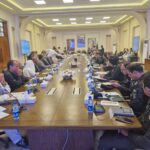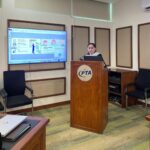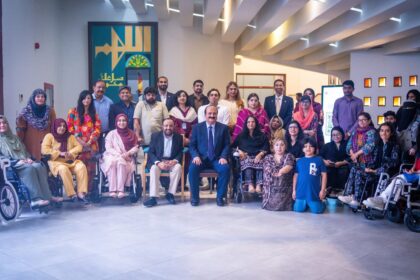Experts Highlight Urgent Reforms Needed for Self-Reliant Agriculture in Pakistan at Isaar’s Roundtable
Pakistan’s path to economic self-reliance lies in modernizing and safeguarding its agriculture sector, leading experts and policymakers concluded during a recent roundtable discussion hosted by Isaar. The event gathered academics, government officials, and sector specialists to address persistent challenges hindering Pakistan’s agricultural potential despite recent increases in government spending.
Presided over by Professor Dr. Tariq Mukhtar, Dean of Arid Agriculture University, the session featured a keynote from former Federal Finance Secretary Dr. Waqar Masood. Isaar President Syed Bilal opened the forum by acknowledging the government’s decision to boost the agriculture budget from Rs. 700 billion to Rs. 1,100 billion. While commending this renewed commitment, Bilal pointed out that funding alone is insufficient without targeted strategies to tackle issues of sustainability, research, and infrastructure gaps.
Malik Nasir, another panelist, outlined the sector’s pressing challenges and identified opportunities for growth through systematic reform. He emphasized the importance of innovation and urged the adoption of forward-thinking policies to unlock agriculture’s full economic potential.
Participants identified four priority areas for Isaar’s future policy work and advocacy. First, the group called for transparent and equitable allocation of research funding within agricultural universities. Panelists argued that empowering academic institutions with resources and autonomy is essential for developing new technologies and driving crop yield improvements.
Second, the roundtable highlighted the necessity of smart crop zoning throughout the country. With mounting water scarcity and shifting climatic conditions, experts proposed a coordinated, nationwide strategy to align crop selection with regional ecological realities, thus boosting efficiency and resilience.
The third major concern was the rapid spread of housing societies into rural and agricultural lands. Experts warned that unchecked real estate expansion is reducing arable land, posing a direct threat to national food security. The forum urged policymakers to ensure that residential development is balanced with the long-term needs of rural communities and agricultural production.
Lastly, the enduring Sindh-Punjab canal water dispute was cited as a significant obstacle to agricultural productivity. Participants advocated for a fair and transparent mechanism to resolve inter-provincial water allocation, aiming to secure equitable access and stabilize output across regions.
The roundtable concluded with a commitment among stakeholders to continue collaborative research, engage with policymakers, and advocate for practical reforms to strengthen Pakistan’s agricultural sector. Ultimately, participants agreed that sustained, evidence-based initiatives will be critical to achieving a self-reliant national economy rooted in resilient agriculture.











